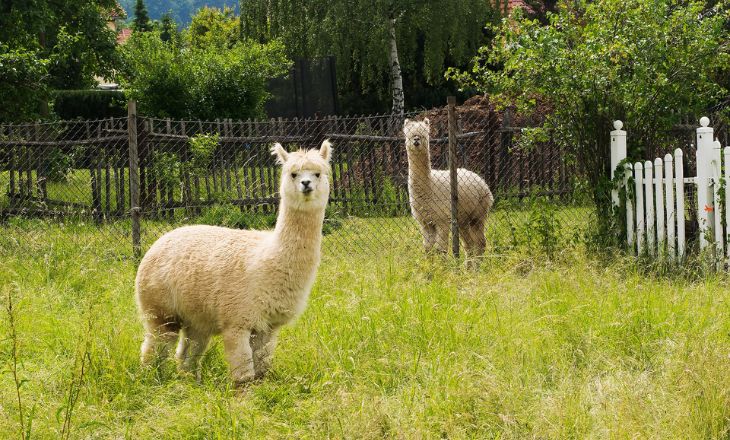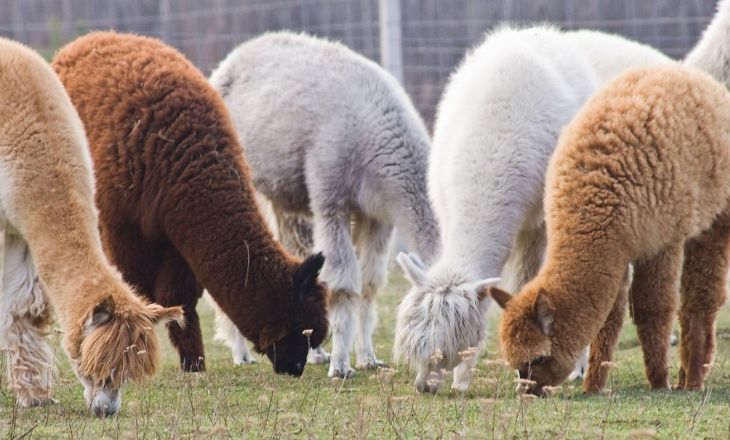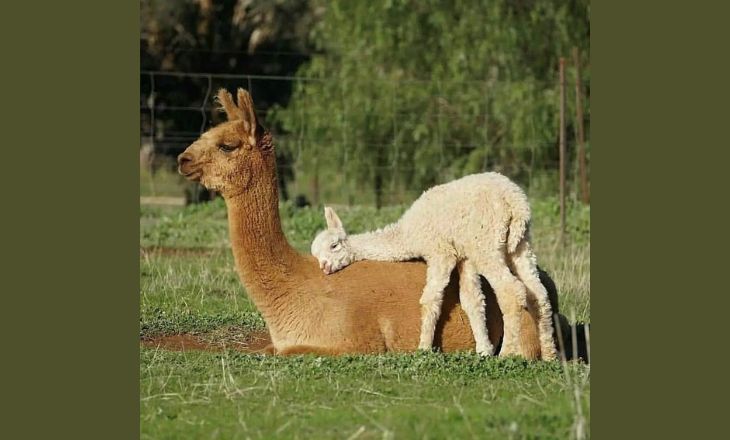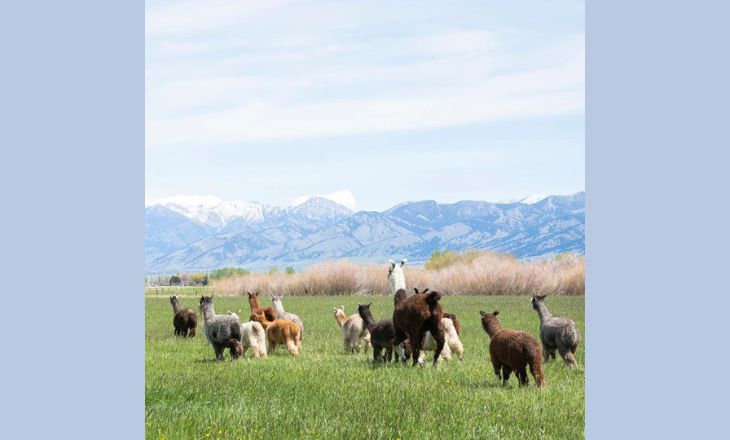Alpacas, with their whimsical appearance and gentle demeanor, has captured the hearts of animal lovers worldwide. But beyond their endearing charm lies a question that many aspiring alpaca owners ponder: how much does an alpaca cost?
From the quality of their fleece to their lineage and breeding history, the price breakdown of these fluffy camelid creatures unveils a spectrum as diverse as the colors in their luxurious coats. Join us on a journey through the realms of alpaca commerce as we unravel the intricacies behind determining just how much do alpacas cost.
How Much Does an Alpaca Cost?
The cost of an Alpaca can vary significantly depending on various factors such as age, breed, and quality. On average, you can expect to pay anywhere from $500 to $5,000 for an Alpaca. High-quality breeding stock or show-quality Alpacas can fetch prices upwards of $20,000 or more.
It’s important to consider not only the initial purchase price but also ongoing expenses such as feeding, grooming, and veterinary care. Investing in a healthy and well-cared-for Alpaca is crucial for its long-term well-being and productivity, the potential income from selling fiber, breeding services, or even participating in shows should be factored into the overall cost-benefit analysis of owning an Alpaca.
Pet Quality Alpacas Cost:
When it comes to pet-quality alpacas, the cost can vary depending on a variety of factors. Pet-quality alpacas are typically less expensive than show-quality animals, but they can still make wonderful companions for those looking to raise these gentle creatures.

It’s important to remember that the initial cost of purchasing a pet-quality alpaca is just one aspect of owning these animals, expenses may include housing, feeding, grooming, and veterinary care, many find that the joy and companionship that alpacas provide far outweigh the financial investment required to care for them.
Hobby Farm Quality Alpacas Cost
When it comes to hobby farm quality alpacas, cost is a crucial factor that potential owners need to consider. The initial investment in purchasing high-quality alpacas can range from $500 to $10,000 or more per animal, depending on factors such as age, fiber quality, and bloodline, there are ongoing costs associated with caring for alpacas, including feed, veterinary care, shearing services, and shelter maintenance.
Show Quality Alpacas Price Range
When it comes to show-quality alpacas, the price range can vary significantly depending on factors such as lineage, conformation, fiber quality, and show record.
The top-tier show-quality alpacas can fetch prices in the tens of thousands of dollars, often reaching up to $50,000 or more for elite champions with exceptional genetics. This high price point reflects the investment breeders make in breeding programs aimed at producing superior animals for the show ring.
Compared to llamas or alpacas generally command higher prices due to their finer and softer fiber which is highly prized in the textile industry. While llamas are larger and have coarser fibers suitable for different purposes such as packing or guarding livestock, alpacas are bred specifically for their luxurious fleece that yields high-quality yarn sought after by artisans and fashion designers alike.
As a result, show-quality alpacas are considered valuable assets not only for their potential winnings in competitions but also for their ability to produce top-grade fiber with commercial appeal.
Herdsire Alpacas
When it comes to purchasing a high-quality herdsire alpaca, the cost can vary significantly depending on various factors such as lineage, conformation, fleece quality, and show record.
Top-tier herd sires with proven genetics and championship titles can command prices in the range of $10,000 to $50,000 or even higher. These elite males are sought after for their ability to consistently produce superior offspring with desirable traits.

Where to buy Alpacas?
If you’re in the market for alpacas, there are several avenues you can explore to find these adorable creatures.
- Alpaca Owners Association (AOA)
- Suri Network
- Reputable alpaca breeder
- Openherd
- Alpaca auctions or shows
Alpaca Owners Association (AOA)
When looking to buy alpacas, the Alpaca Owners Association (AOA) is a reputable resource that connects buyers with quality breeders across the country. AOA members adhere to high standards of care and breeding practices, ensuring that you are getting a healthy and well-cared-for animal.
Suri Network
The Suri Network is another great option for purchasing alpacas, specializing in the unique Suri breed known for its luxurious fleece. Breeders within the network focus on preserving and promoting the Suri alpaca, making it an ideal choice for those interested in this particular type of fiber.
Reputable Alpaca Breeder
One option is to purchase from a reputable alpaca breeder who specializes in breeding healthy and well-cared-for animals. These breeders often have a variety of alpacas available for sale, ranging from young crias to mature adults ready for breeding or fiber production.
Openherd
The Openherd provides an online marketplace where you can easily browse through listings of alpacas for sale from various breeders. This platform offers a wide selection of animals with different ages, colors, and pedigrees, giving buyers plenty of options to choose from based on their preferences.
Alpaca Auctions or Shows
One more option is to attend alpaca auctions or shows, where breeders showcase their best animals and offer them up for sale to interested buyers. This can be a fun and engaging way to not only find alpacas for purchase but also to learn more about the different breeds and qualities of alpacas available in the market.
How Much Does it Cost to Raise Alpacas?
Raising alpacas can be a rewarding but costly venture. The cost per animal depends on factors such as breed, age, and pedigree.
- Feeding
- Housing
- Fencing
- Transportation
- Registration
- Health
- Shearing

Feeding Alpacas
It is not as costly as one might think. These gentle creatures have simple dietary needs and can thrive on a diet of good-quality hay, fresh water, and occasional mineral supplements.
Housing
When it comes to housing for alpacas, basic shelters or barns are sufficient to protect them from extreme weather conditions, setting up a comfortable resting area with proper drainage can enhance their overall well-being.
Fencing
Alpaca’s Fencing is an essential consideration when raising alpacas. While they are generally easy to handle and do not require high fences, sturdy fencing is necessary to keep them safe from predators and prevent them from wandering off. Investing in good quality fencing materials upfront can save you money on potential repairs in the long run.
Transportation
Transportation costs may vary depending on your location and the distance traveled. Whether you’re relocating your alpacas or taking them to shows or markets, ensuring they are safely transported in suitable vehicles with adequate ventilation and room for movement is crucial for their welfare.
Registration
Registration of alpacas is essential for maintaining breed purity and ensuring the value of your herd. Registering your alpacas with organizations like the Alpaca Owners Association typically costs between $20 to $50 per animal. This process involves documenting lineage and meeting specific standards set by the organization.
Health
Health care for alpacas is crucial to their well-being and longevity. Regular vaccinations against common diseases such as clostridium perfringens and tetanus are recommended, deworming treatments should be administered periodically to prevent parasite infestations. Veterinarian check-ups and emergency medical care should also be factored into your budget.
Shearing
Shearing is a necessary task in caring for alpacas that typically takes place once a year during the spring or early summer months. Professional shearers charge around $20 to $40 per animal for this service but investing in quality shearing equipment can save money in the long run if you plan on shearing the animals yourself.
Factors that Determine the Price of An Alpaca
- Coat quality: Alpacas with fine and luxurious coats, such as those with high fiber density and uniformity, are in high demand and typically fetch higher prices in the market.
- Conformation: The overall physical structure of an alpaca, including its size, proportions, and posture, can influence its price. Alpacas with desirable conformation traits are valued more than those with structural imperfections.
- Bloodline: The lineage of an alpaca plays a significant role in determining its price. Alpacas from renowned bloodlines known for superior genetics and breeding history can command premium prices compared to those without a distinguished pedigree.
- Color: The color of an alpaca’s coat also factors into its price, with rare or unique color variations like true black or silver grey fetching higher values on the market.
- Health and temperament: Healthy alpacas with good temperaments are considered more valuable due to lower maintenance costs and ease of handling. Buyers often prefer animals that will require minimal care post-purchase.
How Much to Gain from Alpaca Farming?
Alpaca farming may not make you a millionaire overnight, but it offers a unique opportunity to gain both financially and personally.

The demand for alpaca fiber is on the rise due to its softness, warmth, and hypoallergenic properties, making it a lucrative market for farmers, alpacas are gentle animals that are relatively low-maintenance, making them suitable for small-scale farmers looking to diversify their income streams.
How much does alpaca wool sell for?
Alpaca wool is highly sought after for its luxurious softness, warmth, and durability. The price of alpaca wool can vary depending on the quality of the fiber and the processing involved.
On average, alpaca wool can sell for anywhere between $20 to $100 per pound. However, premium grades of alpaca wool from rare or specially bred alpacas can fetch prices upwards of $200 per pound.
Why are Alpacas so expensive?
Alpacas are considered expensive for a variety of reasons beyond their cute and fluffy appearance. Their high price tag can be attributed to their rarity, specific breeding requirements, and the time-intensive care they require.
Alpacas have limited geographic origins, primarily in South America, making them a relatively exclusive commodity in other parts of the world.
Conclusion
As we explored How Much Does An Alpaca Cost? and Unexplained Price Breakdowns, The cost of purchasing an alpaca can vary depending on various factors such as age, breed, and purpose. While the initial purchase price may seem steep, it is important to consider the long-term costs associated with owning an alpaca including feeding, housing, and healthcare expenses.
It is advisable to conduct thorough research and budgeting before making a decision to bring an alpaca into your care, consulting with reputable breeders or farms can provide valuable insights into the overall cost breakdown, owning an alpaca can be a rewarding experience for those willing to invest in their care and well-being. Consider all aspects carefully before taking the plunge into alpaca ownership.
FAQs
How Much Does Alpaca Wool Sell For Per kg?
The price of alpaca wool can vary depending on factors such as quality, color, and processing. On average, alpaca wool can sell for around $30 to $60 per kilogram, premium or specialty alpaca wool can fetch prices upwards of $100 per kilogram.
How Much Money Can You Make From One Alpaca?
On average, an alpaca can generate anywhere from a few hundred to a few thousand dollars per year through sales of fiber, breeding services, and offspring. Some high-quality alpacas with desirable traits can fetch even higher prices.
- Can Ducks Eat Mushrooms? Unexplained Benefits and Risks - May 25, 2024
- Unveiled Capon Chicken: Capon Chicken Nutritional Benefits - May 25, 2024
- Can Goats Eat Cilantro? Exploring Benefits and Risks - May 24, 2024

